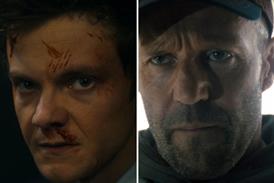First official study on female employment in the French film industry reveals growth in women directors, gender pay chasm.
Women directors accounted for 23% of French features in 2012, a new study on female employment in France’s film industry has revealed.
According to the National Cinema Centre (CNC) study, which covers the period 2008 - 2012, 61 of the 279 films approved by the CNC in 2012 were directed by women, 210 were directed by men and eight were co-directed by male and female directors.
This marked a slight improvement ove 2008 when 18.4% of films, or 43 out of 191 features, were directed by women.
The study showed that 27.3% of debut French features were directed or co-directed by women in 2012, versus 25.7% in 2008, while 33.3% of second films were directed or co-directed by women in 2012, versus 29% in 2008.
Female-directed films budgeted lower
The study showed that the average budget estimate for approved female-directed films in 2012 came in at €3.45m ($4.74m) against €5.66m ($7.78m) for men. The overall average budget estimate for approved films in 2012 was €5.10m ($7m).
Budgets for female-directed films rose by 3.3% between 2008 and 2012, while budgets for pictures directed by men fell by 21.9%.
Female cinema salaries lower
Women also fared worse in terms of pay. The data showed that female directors were paid on average 31.5% less than their male counterparts.
On the crew front, female production managers got 20.7% less in their pay packets while salaries for female electricians were an average 19% lower.
The only cinema jobs in which women were better re-numerated in 2012 were script supervision and stunt work.
Hair and make-up rather than management
Breaking the cinema professions down, the study showed that women were most dominant in the costume and make-up departments, making up 87.2% and 76.6% of the workforce in those domains in 2012. Women also accounted for 75% of script supervisors in 2012.
In terms of salaries, however, female make-up artists and hairdressers earned on average 10.1% less than their male counterparts in 2012. Costume designers and stylists picked up 12.9% less.
In other roles, just 24.3% of production management and administration posts were occupied by women. Crews were even more male dominated with women representing just 3.1% of electricians and 9.5% of sound crew.
Industry response
The report, based on data from 322 companies that produced CNC-approved films between 2008 and 2012, was carried out in in response to lobbying by female film professionals in France, concerned by the lack of women getting ahead in the local cinema industry.
“The figures are better than the rest of the world but they’re still not good,” commented Le Deuxième Regard, a Paris-based lobby group aimed at improving the position of women in the French film industry.
“Female directors are paid 31.5% less than male directors and the situation for actors salaries is not much better,” the group said in a statement. “There’s still a lot to do, without even getting into the stereotypical division of the cinema professions.”
The publication of the CNC study comes as the perennial debate on the potential female presence in Official Selection at the Cannes Film Festival in May starts to bubble, ahead of the line-up announcement next month.
Last year, seven women directors made it into Official selection, one in competition and six in Un Certain Regard.
Female-directed films being bandied about on Cannes prediction lists include Mia Hansen-Love’sEden, Céline Sciamma’s Bande de filles, Naomi Kawase’s Still the Water, Susanne Bier’s Serena and Pascale Ferran’s Bird People.
Le Deuxième Regard pointed out in its March newsletter, meanwhile, that just one of the projects selected for the Cannes’ L’Atelier co-production showcase, overseen by the festival’s Cinefondation, is set to be directed by a female director: Armenian Nora Martirosyan’s Territoria.
It remains to be seen if women fare better in Official Selection.






















No comments yet